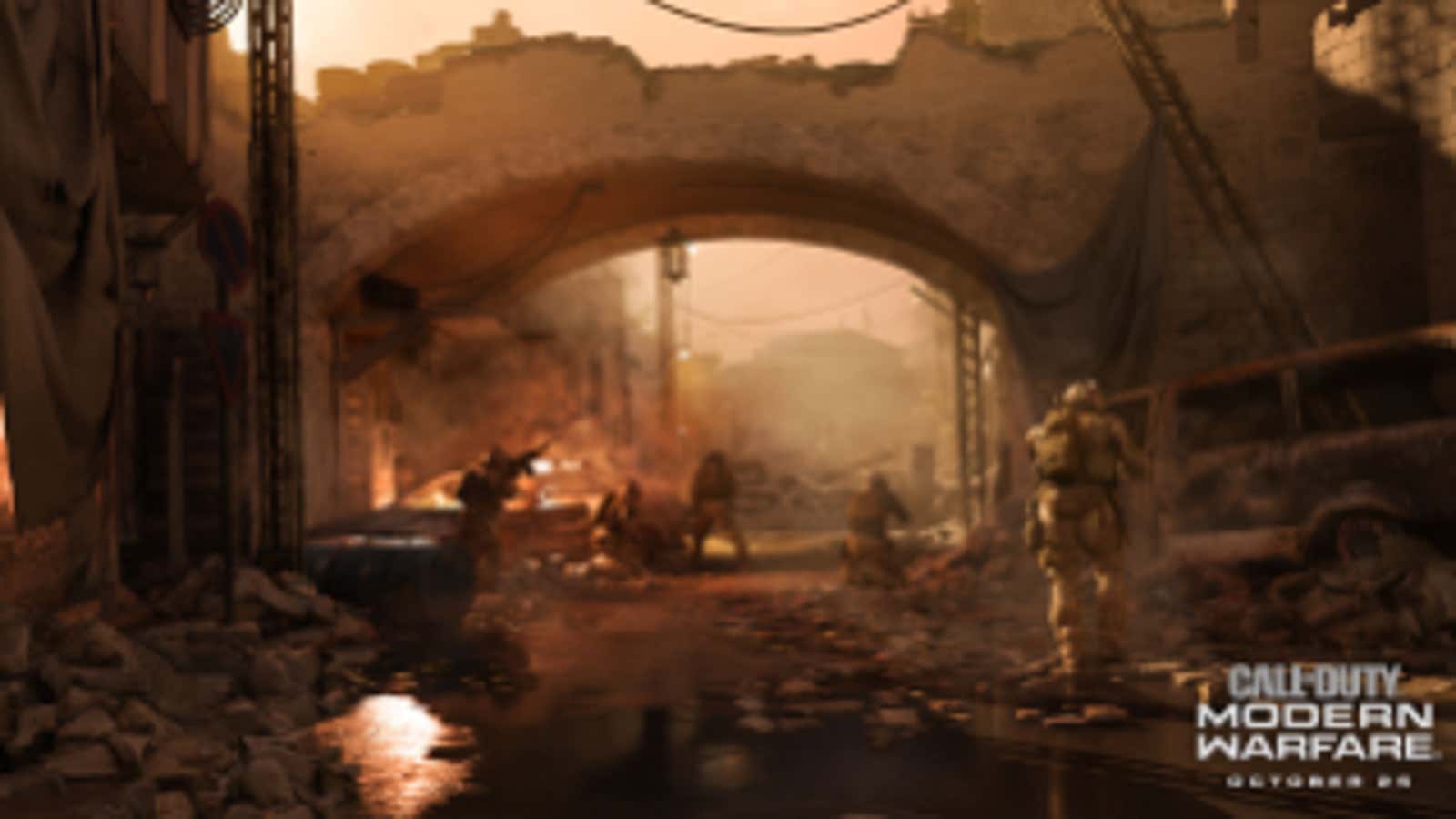Players of Call of Duty: Modern Warfare won’t be able to pay for a chance of getting better at the game. Publisher Activision Blizzard confirmed this week that the upcoming title will be the first in the CoD franchise to use a “battle pass” system, which will allow players to earn points by playing the game, instead of loot boxes.
Ridding loot boxes is a big step for the company, which generated $4.2 billion in revenue last year—more than half of its total revenue—from what’s known as “in-game net bookings,” a category for any additional feature that costs extra for players to unlock and can range from downloadable updates to season passes. Loot boxes, which also fall under this category, allow players to pay real-world money for extra skins or special abilities. The loot box model is used in a myriad of high-grossing titles like Blizzard’s Overwatch, EA’s Star Wars Battlefront II (although they’ve been a source of controversy in the game), as well as other CoD titles like Black Ops and World War II.
Activision did raise eyebrows by announcing that Modern Warfare’s in-game battle pass won’t be launched until well after the game is released on Oct. 25, likely later this year. The game’s publisher explained that such a move would give players a chance to get used to the new game. “First and foremost, we are all focused on making the Day One experience awesome,” Activision wrote in a statement. “Second, it’s important to us that everyone who is playing Modern Warfare has the chance to work their way through the new game and unlock all the rewards that are waiting for you.”
Most CoD players are likely to welcome the new title’s shift to the pass system, which can be purchased at the beginning of each season and come with additional features. “I’d much rather throw 10 bucks at the game every few months than take my chances with random boxes,” wrote one CoD player on Reddit. Unlike loot boxes, which often don’t disclose their contents, Activision says its Modern Warfare battlepass will allow players to see any in-game content earned through the system or purchased with in-game currency. It’s a system that has proved popular for games like Fortnite, Rocket League, PlayerUnknown’s Battlegrounds, and others.
Loot boxes have been a great way for game publishers to keep making money on games beyond their initial sale, but they’re far from popular with players—or regulators. Many reacted negatively when 2K Games’ NBA 2K20, a basketball game, went as far as to feature casino-style slot machines. The mix of gaming and real-world money has proven to be a dangerous combination for many players, especially children. Both Belgium and the Netherlands have banned loot boxes entirely.
The US Federal Trade Commission is in the midst of investigating loot boxes, and an anti-loot box bill by senator Josh Hawley has bipartisan support. In an inquiry published last month, the UK’s parliament likened loot boxes to gambling and recommended that such games be banned until proof emerged that they are safe for minors. Game publishers have argued that they’re not exploiting players since loot boxes are optional and not required to win the game.
But regulators aren’t too convinced, and say the reward mechanisms behind video games encourage the use of loot boxes. “The games industry’s emphasis on player choice does not acknowledge the way in which many games use random reward mechanisms that have been scientifically proven to create repetitive behaviours, and the effect that this might have on the meaningful exercise of choice,” the UK parliament’s Digital, Culture, Media and Sport (DCMS) Committee wrote in a recent report.
Still, it’s unlikely we’ll see sweeping regulation on loot boxes any time soon, at least in Europe. The Gaming Regulators’ European Forum, which published its year-long study on loot boxes on Oct. 2, didn’t move forward with a blanket ban, arguing that any restrictions on loot boxes would depend on the individual gambling laws of each EU country.
Mounting pressure from regulators around the world and angry players seems to be making a small difference. Sony, Nintendo, and Microsoft have all agreed this year to require game publishers to disclose the odds of receiving specific prizes when purchasing loot boxes. In response to the ban in Belgium and Holland, game developers including Blizzard, Valve, and 2K have released versions of their games without loot boxes. With growing public frustration over loot boxes, the gaming industry may soon realize losing alienated players isn’t worth the risk.
